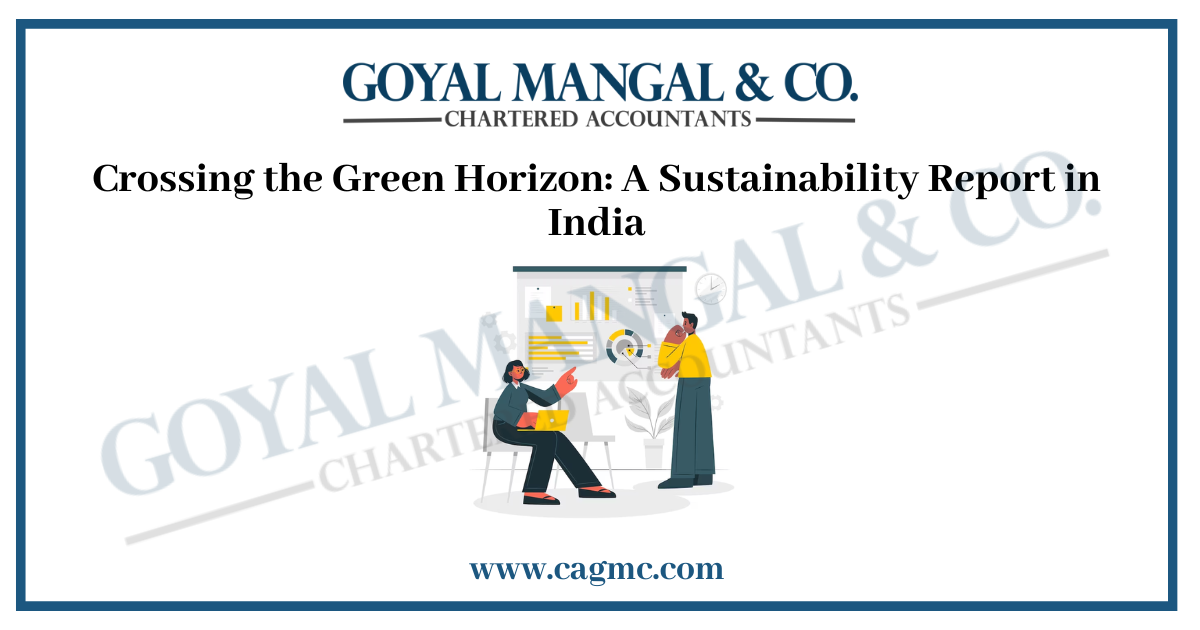
In recent years, the world has seen rapid growth in sustainable practices as societies with the urgent requirement to address environmental and social issues. As we know businesses and industries play a crucial role in shaping the future, and there’s enhancing identification, which affects financial success. The article will show you the sustainability report in India, which includes the transparent disclosure of the performance of an organization’s environmental, social, and governance (ESG) reporting in India.
| Table of Content |
Evolution of Sustainability Reporting in India
In India, the evolution of sustainability reporting is a different journey marked by regulatory amendments, and developing identification of significant environmental, social, and governance (ESG) reporting in India. Here are the key phases of the evolution of sustainability reporting in India:
- Early Recognition (Pre-2000s): In the early stages, the focus was primarily on financial reporting, and environmental and social considerations were often secondary. A few pioneering companies recognized the importance of sustainable practices but lacked a standardized framework for reporting.
- Corporate Social Responsibility (CSR) Mandate (2013): The Companies Act of 2013 in India marked a significant milestone by introducing mandatory Corporate Social Responsibility (CSR) spending for eligible companies. While CSR reporting in India was separate from sustainability reporting, it laid the foundation for businesses to consider their broader societal impact.
- National Voluntary Guidelines on Social, Environmental and Economic Responsibilities of Business (2011): Issued by the Ministry of Corporate Affairs, these guidelines provided a framework for businesses to integrate sustainability into their core operations. They emphasized the triple bottom line approach, covering economic, environmental, and social aspects.
- SEBI Guidelines (2012-2017): The Securities and Exchange Board of India (SEBI) introduced voluntary guidelines for business responsibility reporting (BRR) in 2012, encouraging listed companies to disclose their ESG performance. Over the years, SEBI refined these guidelines, making them more comprehensive and aligning them with international standards.
- Global Reporting Initiative (GRI) Adoption (2015 Onwards): Many Indian companies started aligning their sustainability reporting with international frameworks such as the Global Reporting Initiative (GRI). GRI’s guidelines provided a standardized and globally recognized framework for reporting on sustainability performance.
- Task Force on Climate-related Financial Disclosures (TCFD) Adoption (2018 Onwards): Increasing climate-related risks prompted some Indian companies to adopt the recommendations of the Task Force on Climate-related Financial Disclosures (TCFD) to disclose climate-related information in their reports.
- Sustainability Reporting as a Business Imperative (Present): Sustainability reporting is increasingly viewed as a business imperative rather than just a compliance requirement. Investors, stakeholders, and consumers are placing greater emphasis on companies demonstrating a commitment to sustainability and influencing corporate strategies.
- Regulatory Enhancements and Global Alignment (Ongoing): The regulatory landscape continues to evolve, with discussions on making business responsibility reporting mandatory for a broader set of companies. There is an ongoing effort to align Indian reporting standards with global frameworks, promoting consistency and comparability.
Opportunities of Sustainability Report in India
There are several opportunities in sustainability reporting in India:
- Efficiency and innovation: The procedure of sustainability reporting generally attracts companies to innovate in their goods, services, and operations. This kind of innovation leads to reduced consumption of resources and raised operational efficiency.
- Employee retention and involvement: The younger generation of employees is looking for employers committed to their social and environmental obligations. It affects sustainability records enhances employee involvement and contributes to talent attraction.
- Increased shareholder trust: Effective reporting of sustainability leads to trust and transparency among shareholders. Companies, which communicate their sustainability efforts are to improve support from consumers, investors, and communities.
- Resilience in the supply chain: Report of sustainability encourages transparency in the whole process of the supply chain. It can be helpful to the company to address and recognize the potential risks.
Challenges in Sustainability Reporting in India
At the beginning of the sustainability report in India, there are several challenges have been faced and here are some:
- Lack of standardization: For sustainability reports the absence of standards can result in inconsistencies and difficulties in comparing performance between companies.
- Integration with financial reporting: It is challenging the integrate sustainability reports seamlessly with financial reporting. Various organizations struggle to present a unified view of their financial and non-financial activities in a manner, which is clear and meaningful to stakeholders.
- Data availability and quality: Attaining appropriate information for sustainable reporting can be challenging as companies generally face difficulty in gathering comprehensive data when it comes to complex supply chains or indirect social and environmental effects.
- Amendments in regulations: For companies, it is tough to accomplish compliance as an alteration in regulations and regions gets tougher.
- Resource Intensiveness: Maintaining and growing a robust sustainability reporting procedure needs dedicated resources both in terms of technology and personnel.
- Scope and complexity: Reporting mentions the huge range of challenges such as ESG factors. Evaluating reports, balancing the comprehensive nature of reporting, and setting boundaries to shareholder’s interests can be complex.
End Notes
As India is on the path of economic growth and environmental management, sustainability reporting practices in India emerge as a critical technique for businesses to measure the complexity. The evolution towards sustainability reporting in India provides amendment in corporate practices, along with a cultural shift towards resilient and responsible business models. Beyond compliances, it is committed to accountability and transparency and shared responsibility for the well-being of the public, or we can say all inhabitants of this planet.







